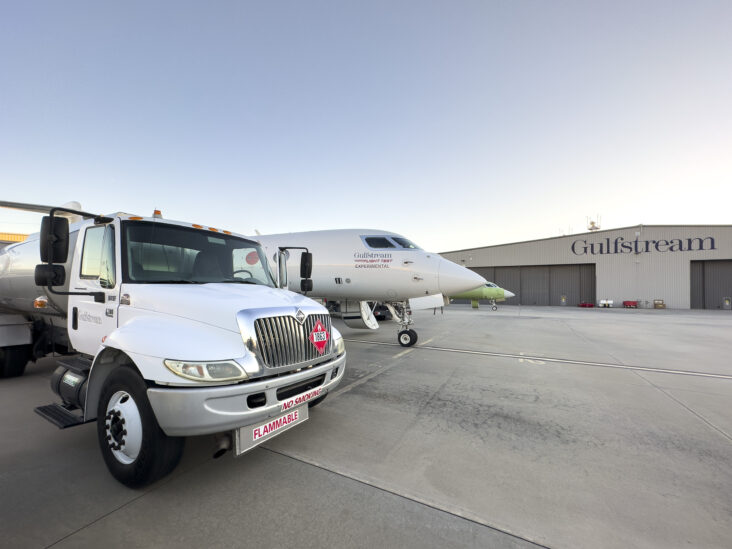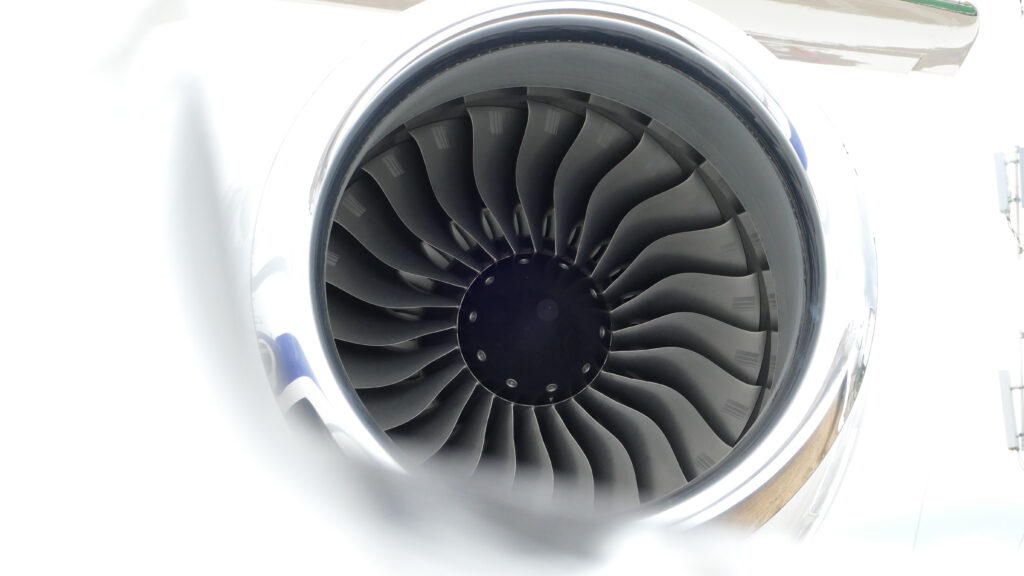Rolls-Royce And Gulfstream Give Wings To Sustainable Business Aviation

Rolls-Royce and GulfstreamAerospace Corp. are leading the way towards sustainable business aviation by conducting the first original equipment manufacturer test flight of an ultralong-range business jet powered by 100% Sustainable Aviation Fuel (SAF). The test took place on the BR725-powered Gulfstream G650twin-jetover Gulfstream’s headquarters in Savannah, Georgia.
Demonstrating that current Rolls-Royce engines for business jet and large civil applications can operate with 100% SAF as a full “drop-in” option, this test lays the groundwork for moving this type of fuel towards certification. At present, SAF is only certified for blends of up to 50%with conventional jet fuel and can be used on all current Rolls-Royce engines.
The SAF that was used in the test consists of two components: HEFA (Hydro processed Esters and Fatty Acids), produced from waste fat and waste plant oils by low-carbon fuel specialist World Energy in Paramount, California, and (SAK) SynthesisedAromatic Kerosene made from waste plant-based sugars by Wisconsin-based Virent Inc. This innovative and fully sustainable fuel in development eliminates the need for the addition of further petroleum-based components and enables a 100% drop-in SAF that can be used in existing jet engines and infrastructure without any modifications.This sustainable fuel has the potential to reduce net CO2 lifecycle emissions by about 80% compared to conventional jet fuel, with the possibility of further reductions in future.
Dr Joerg Au, Chief Engineer – Business Aviation and Engineering Director Rolls-Royce Deutschland, said: “Sustainable aviation fuels are essential for the decarbonisation of the skies, as they have the potential to significantly reduce the carbon emissions of aviation and we have already proved they can be used as a drop-in fuel to power existing engines. This flight test with Gulfstream is another proof point that demonstrates the compatibility of our engines with SAF, bringing us another important step closer to enabling our customers to achieve net zero carbon emissions.”
“At Gulfstream, leading our industry closer to decarbonization is a long-standing priority, and testing, evaluating and promoting new developments in SAF takes us another step closer to that goal,” said Mark Burns, president, Gulfstream. “We are grateful for our partnership with Rolls‑Royce to be able to demonstrate yet another milestone in these efforts.
The BR725-powered G650 aircraft family holds more than 120 world speed records, including the speed record for the farthest flight in business aviation history. With more than 500 aircraft in service, the G650 and its sister aircraft, the Gulfstream G650ER, prove they are among the most trusted business jets in the world. Since its entry into service in 2012, the G650 aircraft family has established a reputation for excellent reliability, efficiency, and speed, combined with outstanding environmental performance.
For high-res images please see here: https://www.flickr.com/photos/rolls-royceplc
About Rolls-Royce Holdings plc
- Rolls-Royce pioneers cutting-edge technologies that deliver clean, safe and competitive solutions to meet our planet’s vital power needs.
- Rolls-Royce has customers in more than 150 countries, comprising more than 400 airlines and leasing customers, 160 armed forces, 70 navies, and more than 5,000 power and nuclear customers.
- Annual underlying revenue was £15.45 billion in 2019, around half of which came from the provision of aftermarket services.
- In 2019, Rolls-Royce invested £1.46 billion on research and development. We also support a global network of 29 University Technology Centres, which position Rolls-Royce engineers at the forefront of scientific research.
About Virent Inc.
Virent uses its patented BioForming® technology to create the fuels and chemicals the world needs from a wide range of naturally occurring, renewable resources. Virent’s patented chemistry converts biobased carbohydrate feedstocks into products molecularly identical to those made from petroleum. Virent’s technology can produce a range of fuel products, including gasoline, diesel, and jet fuel, as well as chemicals used for plastics, fibers and films. Virent is currently working with Johnson Matthey to further develop the BioForming® technology and license it for future commercialization.




